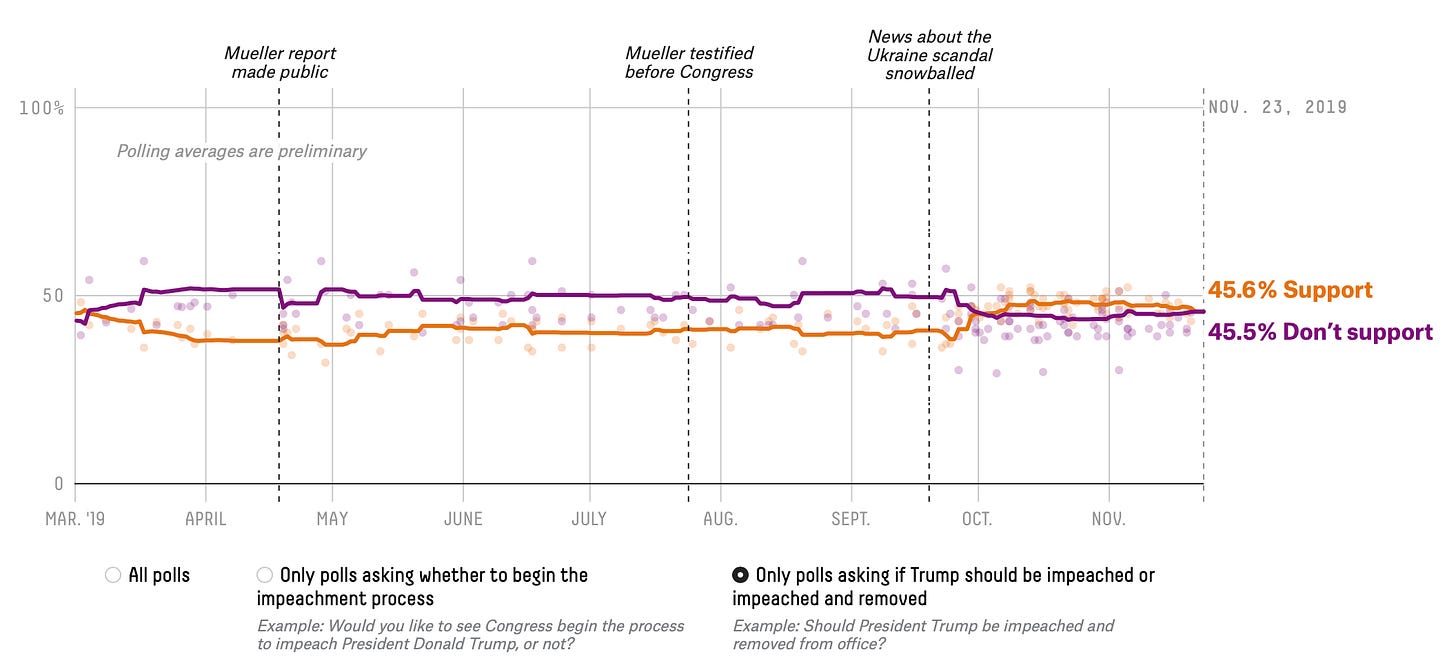How responsive is public opinion?
Democrats and Republicans became more likely to support impeachment in October, but movement has ticked down.
It is a cold and rainy day here in Washington, DC, so naturally I felt it would be a good evening to stay inside and write about the ongoing process to impeach the president of the United States.
The past two weeks have featured doozies of congressional hearings. More than a few of my Democratic friends have reacted positively to them; the revelations have, after all, provided quite a bit of evidence—some new and some confirmatory—that is damning to the president and his defenders. They hope that people will hear them and join the #Resistance.
But among the public, it actually looks like support for impeaching President Trump (and removing from office) has decreased over the past two weeks. The share of voters who favor impeachment has fallen to 46% from a high of 49-50% a month ago, according to FiveThirtyEight’s averaging.

Polling from Civiqs (which is a lesser-known online firm that uses advanced statistical modeling to estimate opinion from hundreds of thousands of survey responden…



